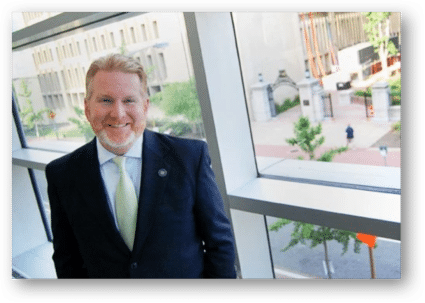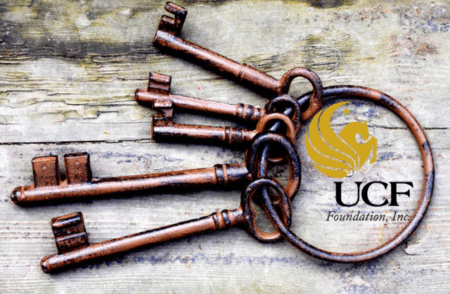“I came to realize in soliciting hundreds of people that when I asked for money, I would get a lot of advice, but when I asked for advice, it frequently led to larger gifts. People were giving a little more of themselves; they were really becoming philanthropic investors.” – Michael Morsberger
 It’s a fundraising principle I’ve encountered countless times: Asking for advice leads to enhanced donor engagement and major gifts. I asked another seasoned fundraiser and a personal mentor of mine, Michael Morsberger, for his perspective on this phenomenon. Mike is the University of Central Florida’s chief fundraiser—their vice-president for alumni relations and development and CEO of the University of Central Florida Foundation.
It’s a fundraising principle I’ve encountered countless times: Asking for advice leads to enhanced donor engagement and major gifts. I asked another seasoned fundraiser and a personal mentor of mine, Michael Morsberger, for his perspective on this phenomenon. Mike is the University of Central Florida’s chief fundraiser—their vice-president for alumni relations and development and CEO of the University of Central Florida Foundation.
In Mike’s nearly 30-year-career, he has led development teams at five major universities and closed a remarkable, $150 million gift from clothing magnate Sidney Kimmel for Johns Hopkins Medicine—a process that took three years.
Here are the 5 keys to donor engagement gleaned from my conversation with Mike:
1. Engage potential donors in your organization. Ask them for their expertise. According to Mike,
“One of the common prerequisites before someone makes a big gift is that they get engaged and involved. Sometimes they join a board or are asked to apply what they know from another business to help the organization. The biggest gifts come from the people who are the most involved.”
2. Involving people and asking them what matters to them is critically important. Mike’s advice:
“I think there are a lot of misconceptions out there in fundraising by the general public that it’s all about having a big gala event or a really successful golf tournament or some matter of bake sale or carwash. Or it’s about more direct mail or a really fancy website or a bright, colorful brochure. And it’s a little bit about all those things—you have to have different points of engagement for different kinds of people with different age brackets and different locations, but mostly, above a certain threshold—let’s say $1,000—people want to be heard. They want to ask questions. They want to offer a little advice. They want to get to know you.”
3. Don’t adopt a sales mentality. Instead, understand the donor’s needs. Mike’s advice:
“Well-meaning volunteers and well-meaning directors of rescue missions and schools and hospitals and all kinds of great nonprofits out there—I think sometimes they adopt this sales mentality. And to some degree, that’s good. You do need to make calls; you do need to make visits and send letters, but you’re not selling copiers here. This is a very different kind of a sale. The point I was trying to make is that if you really want to raise major gifts, in my experience, it’s about getting to know the donor—getting to understand their needs. As I frequently tell my staff, it’s not about our needs. I mean I want you to understand what the needs of this institution [UCF] are, but you really first have to understand the needs of our donors because when their needs intersect with the aspirations of the nonprofits we work for, that’s when the magic happens.”
4. Careful mentorship and management of your staff makes all the difference. Mike’s advice:
“What I’ve found is, again this gets back to the counterintuitive, if you push too hard on how many visits you’ve made or how many gifts you’ve solicited, you miss the bigger opportunities…. At the end of the day or at the end of the fiscal year or calendar year, it’s not enough to have just shown up at 8:30 and left at 5, it’s not enough to have said, ‘I raised X dollars or made X visits.’ It has to be a total package.”
5. It’s important to vary your approach for annual gifts versus capital and planned gift asks. Mike added:
“Not everyone wants to join a board or paint walls and get directly engaged in the mission, but you have to have thoughtful people out on the front lines making those judgments.”
Our thanks to Michael Morsberger! Be sure to subscribe to the Dickerson, Bakker newsletter to have first access to the upcoming podcast of our full interview with Mike.
Is there a topic or person you’d like to see featured on our Dickerson, Bakker blog or in an upcoming podcast?
We are always looking for inspirational stories, local or national happenings & interviews with community, nonprofit & ministry leaders to send out to our loyal readers. Contact our marketing department for more information!


